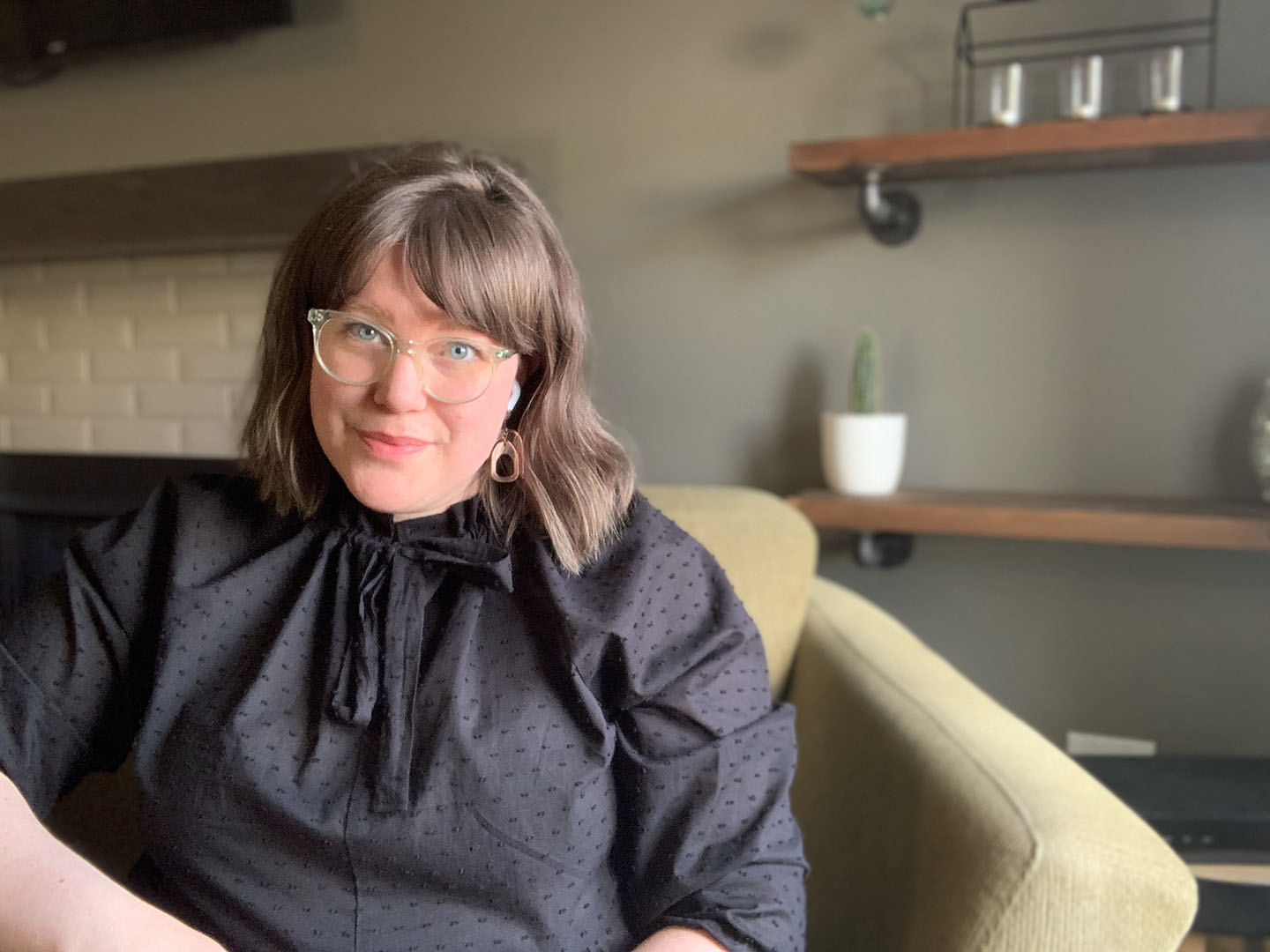Mental health for graduate students is the focus for Mikhaila Skehor
Tamara Vineberg - 28 June 2021
 Mikhaila Skehor, graduate studies coordinator in the Department of Pediatrics, advocates for mental health on the behalf of students. We discussed why this is a passion for her.
Mikhaila Skehor, graduate studies coordinator in the Department of Pediatrics, advocates for mental health on the behalf of students. We discussed why this is a passion for her.
Why do you love working for the Department of Pediatrics?
My favourite part of my position is connecting with students and ensuring their program experience is as streamlined as possible so they can focus on their research. I'm always happy to help, and if it's something that's not a big deal to me, but makes an impact for a student, my heart grows three sizes! The coworkers in the department are second-to-none; everyone is always willing to pitch in and help.
We heard you are a mental health advocate. Why is this a passion for you?
I have lived experience with both depression and anxiety, and want people to feel like they can discuss these things without repercussions. We’ve come a long way to talk about mental health and mental illness, but we’re at a spot where the focus is “mental illness lite”. Many people don’t feel comfortable sharing how they navigate having schizophrenia at the office, for example. With psychological health and safety, I want to push the conversation forward and create more psychologically healthy and safe work environments. We’ve been talking—let’s start doing.
How have you incorporated mental health promotion into the Department of Pediatrics graduate studies program?
I expanded the orientation to include a mental health component, and we hand out PASS kits (mental health first aid kits) and resource pamphlets from the Dean of Students’ office at each one. Our students are spread out across so many labs and buildings that getting them together in one room for lunch (pre-pandemic) helps build peer relations between new and current students. Our Pediatric Graduate Students Group has done an amazing job of keeping those connections alive during the pandemic. I try to normalize mental health conversations with students in my day to day, and to reassure them when they’re stressed or receive bad news (that they weren’t successful in an award competition, for example), that it’s okay, and we have resources available should they need them. If they have a query, either I can answer it, find it, or direct them elsewhere, but no question is too small.
You completed a certificate in Occupational Health and Safety through the University of Alberta’s Faculty of Extension recently. What key highlights did you learn from the program and how will you carry out them?
My last class was organizational behaviour, and it was perfect timing since immediately afterward, I accepted the Education Team Lead (Interim) role. The course content was useful for this position, and I’m a better leader as a result. Other students in my classes helped me understand workplace physical safety concerns, as I don’t have the typical safety industry background. The auditing course helps me identify gaps where we can improve, and using a systems management approach (with leadership support) when implementing new initiatives is a key learning as well.
What does winning the OHS Healthy Workplaces Award from the Faculty of Extension mean to you?
I’ve written very few essays since my undergrad degree, so it was nice to confirm that I still have those skills! The panel that adjudicated the competition comprised industry experts, and for them to choose me as a winner was very validating. Plus, it brings attention to my essay topic of COVID-19’s impact on the working population—I want to ring the alarm that we’re going to need an abundance of mental health support for frontline workers and working parents when this is over.
Learning in general is a passion of mine; I really enjoy learning new skills - I knit, cross stitch/embroider, sew, quilt, and bake. I also like to expand my knowledge with online courses, such as the University of Alberta’s Indigenous Canada course.
How have you been keeping busy?
Self-compassion for taking downtime has been key for me. I say I don't like to be busy, but then I sew a quilt for the first time, or reorganize that random drawer in the kitchen. It’s a privilege, but slowing down and having those days where I read, watch Netflix, and go out with my dog for a few walks is helpful for my mental health.